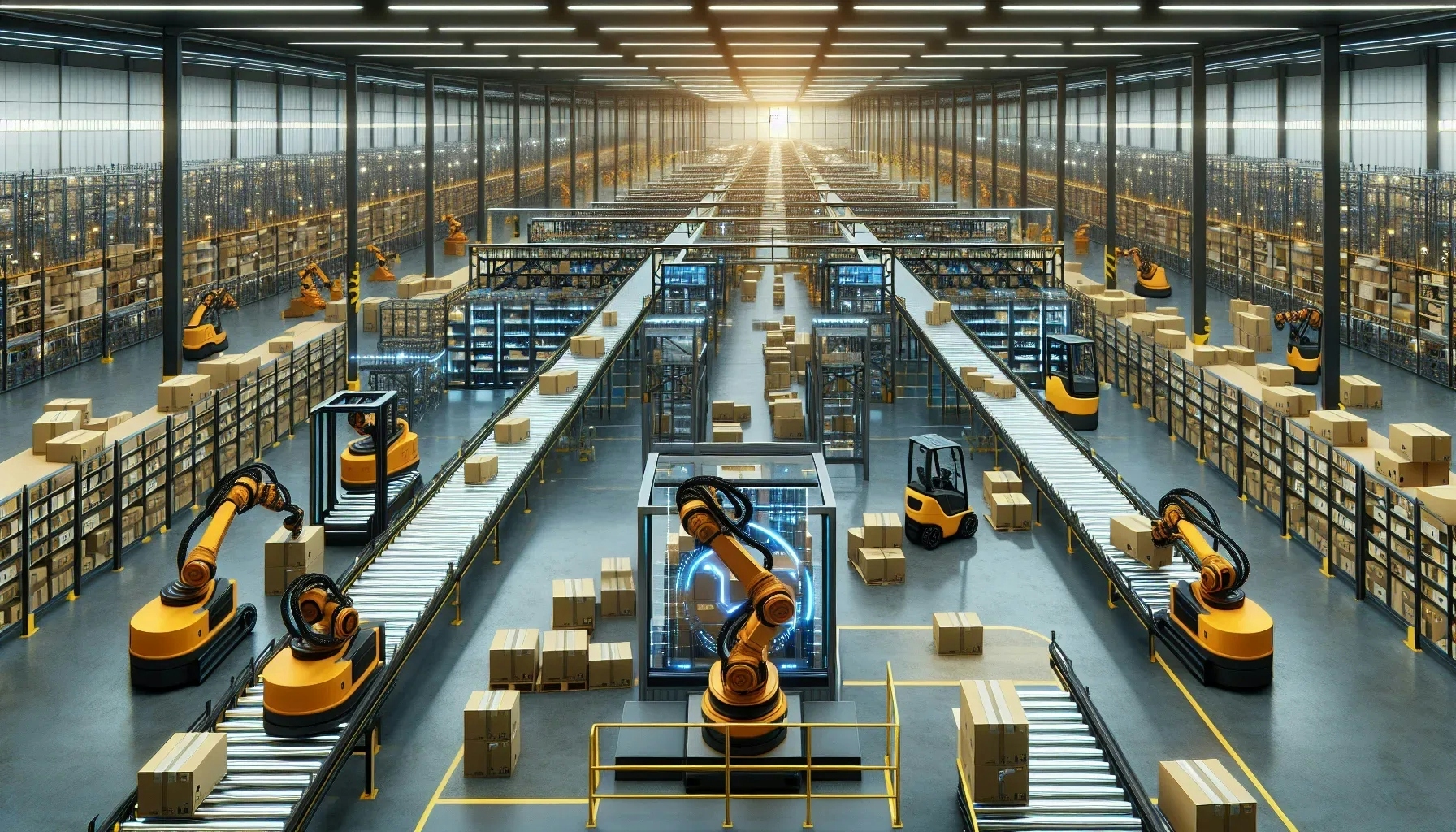Welcome to a deep dive into the transformative role of artificial intelligence (AI) in logistics optimization. As we navigate through the digital age, AI has emerged as a game-changing technology, reshaping various industries, including logistics. This post will explore how AI is revolutionizing logistics operations, enhancing efficiency, and driving cost-effectiveness.
The Dawn of AI in Logistics
Artificial intelligence, a term once confined to the realms of science fiction, has now become a reality. It is increasingly being adopted in various sectors, including logistics. The integration of AI in logistics is not a sudden phenomenon. It has been a gradual process, driven by the need for efficiency and accuracy in logistics operations.
AI's role in logistics is multifaceted. It helps in streamlining operations, reducing costs, and improving customer service. AI-powered solutions are being used for tasks ranging from inventory management to route optimization. These solutions are not only making logistics operations more efficient but also helping companies stay competitive in a rapidly evolving market.
The use of AI in logistics is not without its challenges. Issues such as data privacy and security, lack of skilled personnel, and high implementation costs are some of the hurdles that need to be overcome. However, the benefits of AI far outweigh these challenges, making it a worthwhile investment for logistics companies.
AI and Inventory Management
One of the key areas where AI is making a significant impact is inventory management. Managing inventory is a complex task that requires accurate forecasting and real-time tracking. AI-powered tools are helping logistics companies achieve this with greater accuracy and efficiency.
AI algorithms can analyze historical data and predict future demand with a high degree of accuracy. This helps in avoiding overstocking or understocking, thereby reducing inventory costs. AI can also track inventory in real-time, providing valuable insights that can be used for decision-making.
Moreover, AI can automate routine tasks such as stock replenishment, freeing up human resources for more strategic tasks. This not only improves efficiency but also reduces the chances of human error.
AI in Route Optimization
Another area where AI is proving to be a game-changer is route optimization. Logistics companies need to deliver goods in the most efficient and cost-effective manner. This requires careful planning and optimization of routes.
AI-powered tools can analyze various factors such as traffic conditions, weather, and road conditions to suggest the most efficient routes. This not only reduces delivery time but also saves fuel costs.
Furthermore, AI can predict potential disruptions and suggest alternative routes in real-time. This helps in ensuring timely delivery and improving customer satisfaction.
AI and Customer Service
Customer service is a critical aspect of logistics operations. AI is helping logistics companies enhance their customer service by providing personalized experiences and real-time updates.
AI-powered chatbots are being used to handle customer queries round the clock. These chatbots can understand and respond to customer queries in a human-like manner, improving customer engagement.
Moreover, AI can provide real-time tracking updates to customers, keeping them informed about the status of their deliveries. This not only improves transparency but also enhances customer satisfaction.
The Future of AI in Logistics
The future of AI in logistics looks promising. With advancements in technology, we can expect AI to play an even bigger role in logistics optimization.
AI-powered autonomous vehicles and drones could revolutionize delivery operations, making them faster and more efficient. AI could also be used for predictive maintenance, helping logistics companies avoid costly breakdowns and disruptions.
Moreover, with the advent of technologies such as the Internet of Things (IoT) and 5G, the possibilities for AI in logistics are endless. These technologies could enable real-time data collection and analysis, further enhancing the capabilities of AI in logistics.
Overcoming Challenges in AI Implementation
While the benefits of AI in logistics are clear, implementing AI is not without its challenges. Data privacy and security, lack of skilled personnel, and high implementation costs are some of the hurdles that logistics companies need to overcome.
However, with proper planning and strategy, these challenges can be overcome. Investing in training and development can help logistics companies build a skilled workforce capable of handling AI technologies. Implementing robust data security measures can ensure data privacy and security.
Moreover, logistics companies can start with small-scale AI projects and gradually scale up as they gain confidence and expertise. This can help in reducing the initial implementation costs and risks.
Wrapping Up: AI's Pivotal Role in Logistics Optimization
As we've explored, AI is playing a transformative role in logistics optimization. From inventory management to route optimization, AI is helping logistics companies enhance efficiency and drive cost-effectiveness. While challenges exist, the benefits of AI make it a worthwhile investment for logistics companies. As technology advances, we can expect AI to play an even bigger role in shaping the future of logistics.

